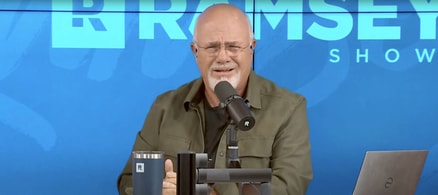How does the No Surprises Act work?

The new law affects almost all employer-based plans and individual plans, whether they’re bought on the Affordable Care Act marketplace or not.
When receiving unexpected out-of-network care — including emergency care, elective procedures and even air ambulance — you’ll only be responsible for your normal in-network deductibles, copays or coinsurance.
As for the rest of the bill? Your insurance company and the out-of-network provider will have 30 days to settle the outstanding balance between themselves.
Unsettled bills move to arbitration. Each side proposes a price, and a certified arbitrator picks one, taking into account various factors like the typical in-network rate for similar services.
Stop overpaying for home insurance
Home insurance is an essential expense – one that can often be pricey. You can lower your monthly recurring expenses by finding a more economical alternative for home insurance.
SmartFinancial can help you do just that. SmartFinancial’s online marketplace of vetted home insurance providers allows you to quickly shop around for rates from the country’s top insurance companies, and ensure you’re paying the lowest price possible for your home insurance.
Explore better ratesSo will it save or cost me money?

While the act will save you from getting a surprise $2,600 bill from some surgical assistant or anesthesiologist, the effect on your normal bills is foggy.
“There is significant uncertainty regarding the net effects that the legislation will have on health care costs,” says the nonprofit Brookings Institution.
Health care costs and premiums may go down, since providers can no longer rely on surprise billing to provide a lucrative alternative to fair deals.
On the other hand, the arbitration process itself costs money that may be passed down to you. And if arbitrators end up favoring health-care providers, they may be able to charge insurance companies higher prices than they do today — and your premiums would rise to match.
“The legislation might result in no savings or even potentially increase costs,” Brookings says.
Taking all of that into account, the Congressional Budget Office’s best guess is that the No Surprises Act will lower premiums by between 0.5% and 1% each year.
How to reduce your health care costs

If you’re already suffering from high health-care costs, a 0.5% discount won’t make a real difference. And if bills do end up increasing instead, you’ll want to be prepared.
Start by using a quote comparison site to see whether you can find a cheaper health insurance plan. These sites can sort through hundreds of insurers at once and even find discounts you might not know about.
If you need to make even more room in your budget, try some other money-saving strategies:
-
Cut the cost of your debt. Credit cards can help in emergencies, but their high interest rates are extremely costly. If you've been relying on plastic to get you through the pandemic, try rolling your balances into a lower-interest debt consolidation loan.
-
Reduce your housing costs with a refi. If you’re a homeowner and haven't refinanced your loan in the last year, you could be missing out on major savings. Refi rates are now available at 2% and even lower, and multiple studies have indicated that savings of at least $300 a month are typical.
-
Stop overpaying online. It’s hard to feel confident you’re getting the best price when there’s thousands of stores on the internet. Try using a free browser tool to automatically scour the internet for lower prices and coupons.
-
Turn your pennies into profits. You don’t need a lot of money or a finance degree to take advantage of the record-breaking stock market. Using a popular app, you can build a portfolio just by investing your "spare change" from everyday purchases.
Sponsored
Unexpected vet bills don’t have to break the bank
Life with pets is unpredictable, but there are ways to prepare for the unexpected.
Embrace Pet Insurance offers coverage for treatment of accidents, illnesses, prescriptions drugs, emergency care and more.
Plus, their optional wellness plan covers things like routine vet trips, grooming and training costs, if you want to give your pet the all-star treatment while you protect your bank account.






